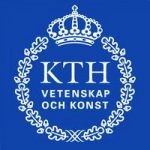项目介绍
Third-cycle subject: Computer science
6G networks are expected to deliver massive improvements in speed, responsiveness, and energy efficiency—and meeting these demands will require smart, distributed computing built directly into the network. This research project focuses on designing AI-native edge computing systems that can power the next generation of wireless infrastructure. We will explore how to combine heterogeneous computing platforms with distributed MIMO architectures to support both real-time AI workloads and traditional signal processing. The goal is to develop intelligent, scalable, and sustainable network nodes that can handle everything from user services to advanced coordination tasks. If you are excited by cutting-edge systems design, AI at the edge, optimization, and shaping future mobile networks, this is your chance to dive in. A strong focus will lie on the development of optimization algorithms that include machine learning components, and on cooperation with industrial partners and with the TECoSA competence center at KTH.
The Division of Network and Systems Engineering conducts fundamental research in networked systems, wireless communications and cyber security. Industrial projects involve partners such as Ericsson, Atlas Copco and Telenor. Part of the research is conducted within the framework of the Wallenberg AI, Autonomous Systems and Software Program and in Digital Futures. We have an extensive academic network and collaborate with researchers at MIT, UIUC, EPFL, among others.
Supervision: Prof. György Dán and Prof. Emil Björnson
What we offer
- The possibility to study in a dynamic and international research environment in collaboration with industries and prominent universities from all over the world.
- A workplace with many employee benefits and monthly salary according to KTH’s Doctoral student salary agreement.
- A postgraduate education at an institution that is active and supportive in matters pertaining to working conditions, gender equality and diversity as well as study environment.
- Work and study in Stockholm, close to nature and the water.
- Guidance on relocating and settling in at KTH and in Sweden
Admission requirements
To be admitted to postgraduate education (Chapter 7, 39 § Swedish Higher Education Ordinance), the applicant must have basic eligibility in accordance with either of the following:
- passed a second cycle degree (for example a master’s degree), or
- completed course requirements of at least 240 higher education credits, of which at least 60 second-cycle higher education credits, or
- acquired, in some other way within or outside the country, substantially equivalent knowledge
In addition to the above, there is also a mandatory requirement for English equivalent to English B/6.
Selection
In order to succeed as a doctoral student at KTH you need to be goal oriented and persevering in your work. During the selection process, candidates will be assessed upon their ability to:
- independently pursue his or her work
- collaborate with others,
- have a professional approach and
- analyze and work with complex issues.
In the evaluation of candidates, great emphasis is placed on study results and completed courses. An earlier specialization in optimization and/or mathematical statistics and/or machine learning is highly desirable and especially meritorious.
After the qualification requirements, great emphasis will be placed on personal skills.
Target degree: Doctoral degree
Information regarding admission and employment
Only those admitted to postgraduate education may be employed as a doctoral student. The total length of employment may not be longer than what corresponds to full-time doctoral education in four years’ time. An employed doctoral student can, to a limited extent (maximum 20%), perform certain tasks within their role, e.g. training and administration. A new position as a doctoral student is for a maximum of one year, and then the employment may be renewed for a maximum of two years at a time. In the case of studies that are to be completed with a licentiate degree, the total period of employment may not be longer than what corresponds to full-time doctoral education for two years.
Union representatives
Contact information forunion representatives.
Doctoral section (Students’ union on KTH Royal Institute of Technology)
Contact information fordoctoral section.
To apply for the position
Apply for the position and admission through KTH’s recruitment system. It is the applicant’s responsibility to ensure that the application is complete in accordance with the instructions in the advertisement.
Applications must be received at the last closing date at midnight, CET/CEST (Central European Time/Central European Summer Time).
Applications must include the following elements:
- CV including your relevant professional experience and knowledge.
- Copies of diplomas and grades from previous university studies and certificates of fulfilled language requirements (see above). Translations into English or Swedish if the original document is not issued in one of these languages.Copies of originals must be certified.
- Representative publications or technical reports. For longer documents, please provide a summary (abstract) and a web link to the full text.
Other information
Striving towards gender equality, diversity and equal conditions is both a question of quality for KTH and a given part of our values.
For information about processing of personal data in the recruitment process.
It may be the case that a position at KTH is classified as a security-sensitive role in accordance with the Protective Security Act (2018:585). If this applies to the specific position, a security clearance will be conducted for the applicant in accordance with the same law with the applicant’s consent. In such cases, a prerequisite for employment is that the applicant is approved following the security clearance.
联系方式
电话: +46 8 790 60 00相关项目推荐
KD博士实时收录全球顶尖院校的博士项目,总有一个项目等着你!




